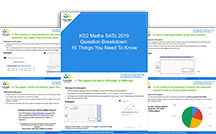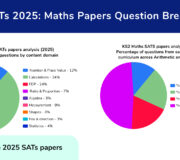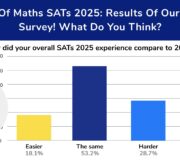KS2 SATS 2019: Maths Papers Question Breakdown
This article was originally published on 28th May 2019.
Now that the KS2 SATs papers 2019 have been released from embargo, we’ve taken a look through both Reasoning papers 1 and 2, and the Arithmetic paper to prepare a brief content breakdown for Year 6 teachers.
Working with our expert maths consultant, we’ve attempted to give you the run-down of the lessons we can all learn from the rather ‘interesting’ KS2 SATs papers 2019 to help you plan your approach for Year 6 maths.
Now, we know the last thing you want to be thinking about is the finer details of the SATs papers after all the hard work you’ve put in over the past year, and that is why we’ve done this breakdown for you!
SATS 2026: STAY UP TO DATE
Join our email list to stay up to date with the latest news and free resources for SATs 2026. As usual our expert teachers will be on hand to provide one to one tuition support, revision resources, expert paper analysis, SATs teacher survey results and the SATs results 2026.
1. Difficult ‘cliff edges’
In all three of the 2019 Maths SATS papers, there were distinct cliff edges in terms of difficulty- with questions being fairly straightforward until:
Q23 in paper 1
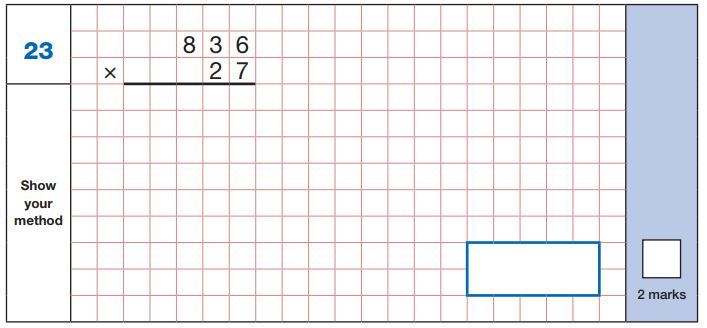
Q13 in paper 2
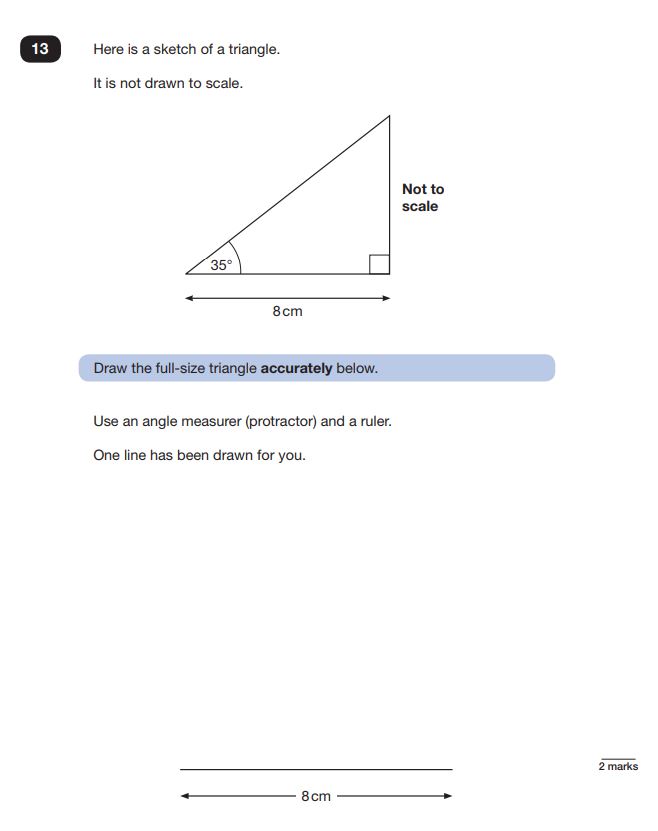
Q15 in paper 3
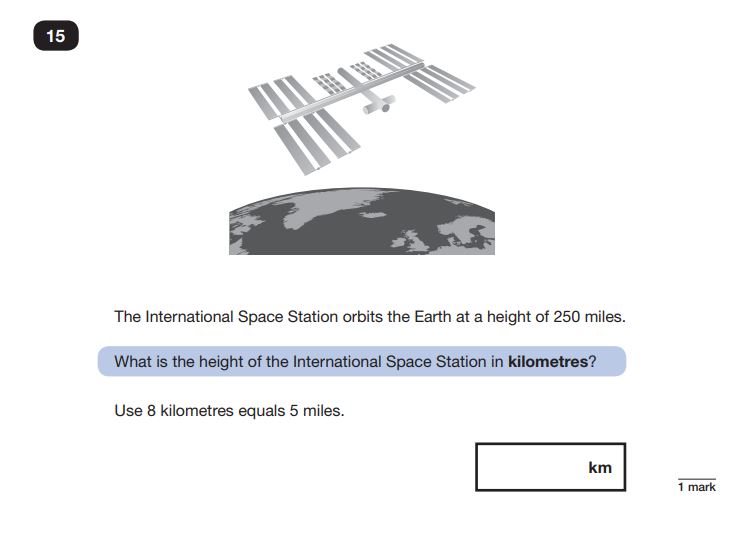
And then becoming suddenly MUCH harder and more complex.
Cliff edges are something that test developers are supposed to try to avoid – so it is interesting to see that they were so prominent this year!
2019 SATs Question Breakdown - Teacher Resource
See the 16 lessons you should take from the 2019 KS2 SATs papers, including clues about what may come up in the 2022 papers to help you prepare!
Download Free Now!2. Cognitively complex questions
As we revealed in our post on how SATs papers are put together, along with the content domain (the what of the question) there is also the cognitive domain (the how the question is asked) that questions are written against.
In the 2019 papers, there was certainly a shift of asking more cognitively complex questions that required a lot of thinking or processing to either interpret or to carry out the steps required to find a solution or answer.
For example, amongst many others, we had the rather interesting area/perimeter question in Paper 2…
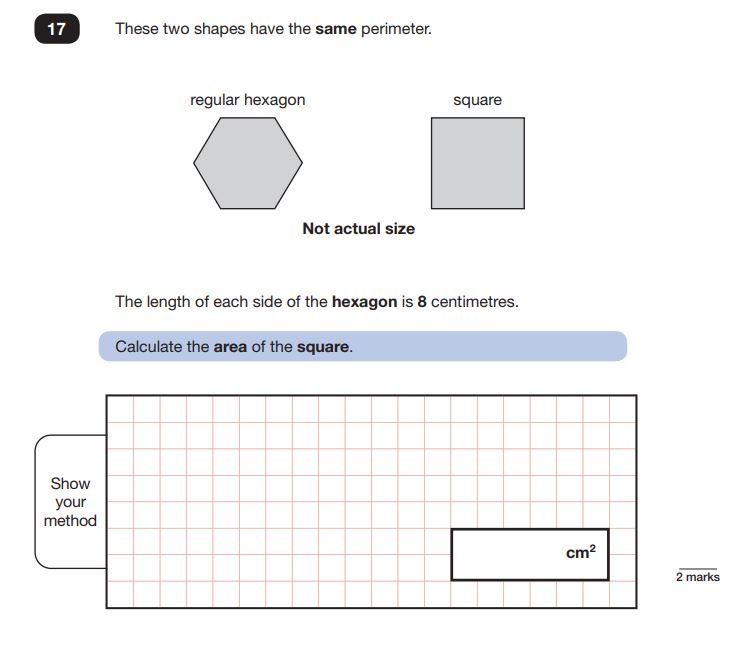
The growing cuboid in Paper 2
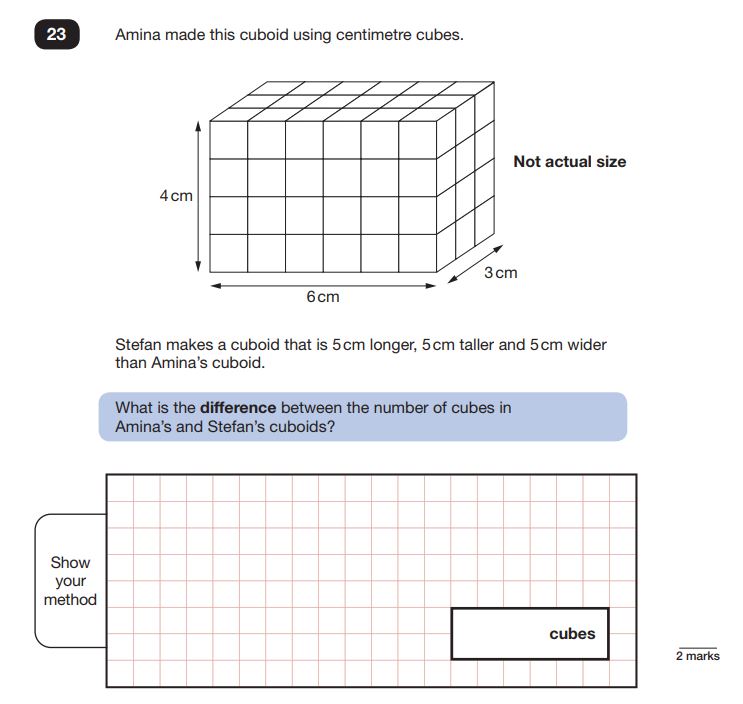
And the rectangle co-ordinate question in Paper 3
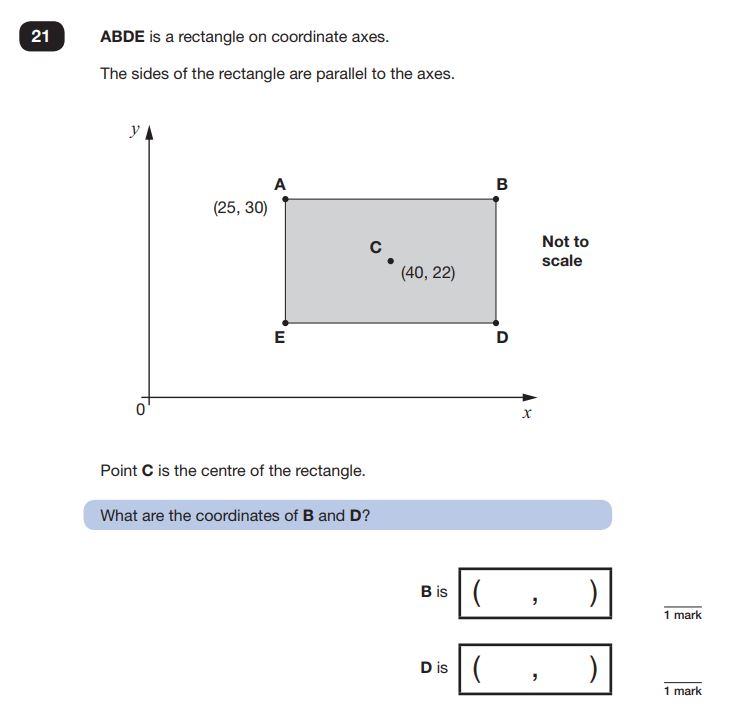
All of these questions, along with many more, placed a significant amount of cognitive demand on the children sitting the papers compared with past SATs papers.
[Don’t worry- we’ll come to Adam and his desire to cut up some squared paper soon…]
The level of cognitive demand required of the children (particularly in Paper 2) is interesting, as there are set requirements over the proportion of each level of cognitive demand that makes up the questions in each suite of papers, and it’s unclear how the 2019 suite meets the Standard and Testing Authority’s framework.
We also saw a number of ‘high cognitive domain, high content domain’ questions, which are supposed to be very limited in number.
There was an element of balancing things out with Paper 3, with there being less cognitively demanding questions, but this doesn’t seem to make up for the complexity of cognitive demand in Paper 2.
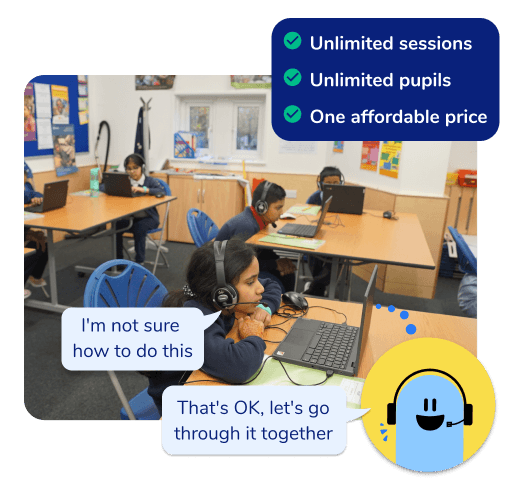
Unlimited primary maths tutoring with Skye, the voice-based AI maths tutor.
Built on the same principles, pedagogy and curriculum as our traditional tutoring, but with more flexibility, reach and lower cost.
Join the schools already helping hundreds of primary pupils nationwide with Skye’s one to one maths tutoring.
Watch Skye in action3. More work required for one or two marks
As we have seen already in this article, there were questions this year that were worth one mark, but required a lot of thinking, processing and unpicking.
Again, this is interesting given the requirements set out in the test framework and could have meant that many children found time management difficult in the KS2 SATs papers 2019.
4. High level of spatial awareness and processing required
Many of the questions this year also included a high level of spatial awareness, reasoning and processing.
This was at an even higher level than last year, where there was also an increased element of spatial reasoning required.
This was shown in a few questions, including the infamous Adam and his rectangle of squared card…
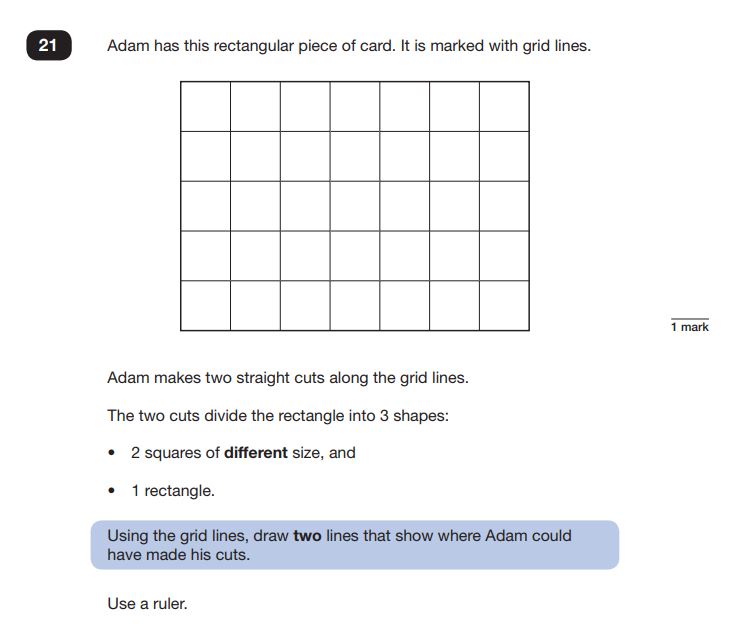
This question required a high level of spatial reasoning and processing, especially considering it was a single mark, and popped up in a place in the paper that could easily ‘distract’ children into spending a disproportionate amount of time attempting to solve the question.
This question was also interesting as it had two possible ways of solving – purely spatially (trying to ‘see’ the 2 squares and rectangle) and numerically (realising there are 35 squares, and therefore 2 square numbers needed to fit within this).
However, it was written in such a way that meant that this numerical possibly was ‘hidden’. (There are also arguably issues with the wording of the question, as many children assumed that the lines had to go fully across the card.)
High level of spatial reasoning was also necessary in the cuboid question from Paper 2 (see above) and the triangles question in Paper 3, which required children to make a connection to the properties of a rectangle and its relationship to the triangles to solve the problem (again, for only one mark).
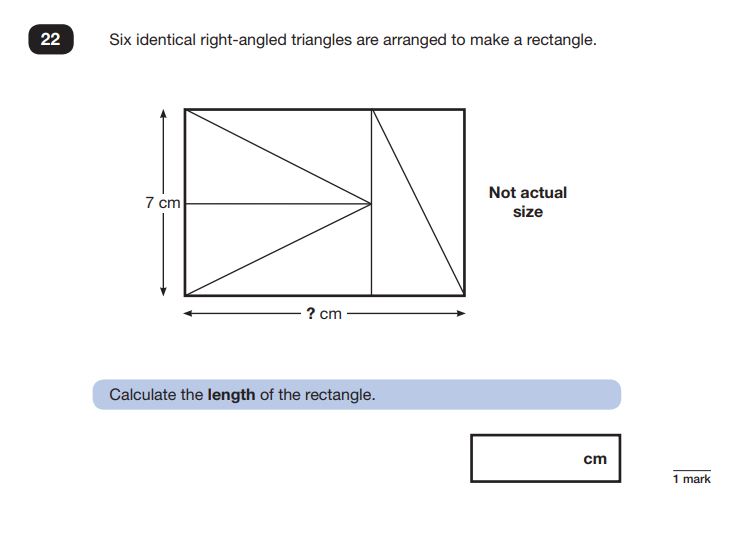
Take a look at our post on developing reasoning skills to see how you can help your class prepare for the SATs next year.
5. Reasoning success required resilience and creativity
Children’s resilience was tested this year to a degree that was even higher than last year.
As we have said above, a significant amount of the 2019 Maths SATs questions relied on children finding the ‘in’ point – once they have got the way in to the problem, the maths involved was actually, in many cased, fairly simple- but it was challenging to find the ‘in’.
Children therefore needed to be resilient enough to continue searching for the ‘in point’ and not to be discouraged if they can’t immediately identify how to solve the problem.
A conceptual understanding of maths also helps here, along with a secure understanding of the connections between areas of maths, and familiarity with structures such as the bar model.
This, together with the way the papers were constructed, and the order of the questions, meant that a significant number of children were reduced to tears or became really frustrated during the tests – especially on paper 2.
This is obviously a less than ideal scenario.
Let’s hope next year’s papers are kinder in the way they are put together – but expect there to still be a need for children to keep searching for the ‘in’ point.
6. Test of ‘true’ fluency
As we identified last year, lots of the questions across all 3 papers could be seen as testing ‘true’ fluency- that is, that children can use and apply their number facts and connections between numbers and areas of maths, rather than ‘superficial’ fluency – which is children just being able to recall number facts and relationships.
It seems, therefore, that we can expect this theme to stay!
Are you considering tutoring for your school?
If you’re looking for a way to make improvements in maths attainment next year, take a closer look at how our AI maths tutoring with Skye can work for you.
Book your no commitment 10 minute demo to discover the impact our AI tutoring can have for your pupils – it’s never been easier or more affordable. Call us on 0203 771 0095 or contact us here to learn more about how we can help turbocharge maths in your school, even for low prior attainers!
7. Previously missing content included in the 2019 papers
For example, we had children having to:
Accurately draw angles….
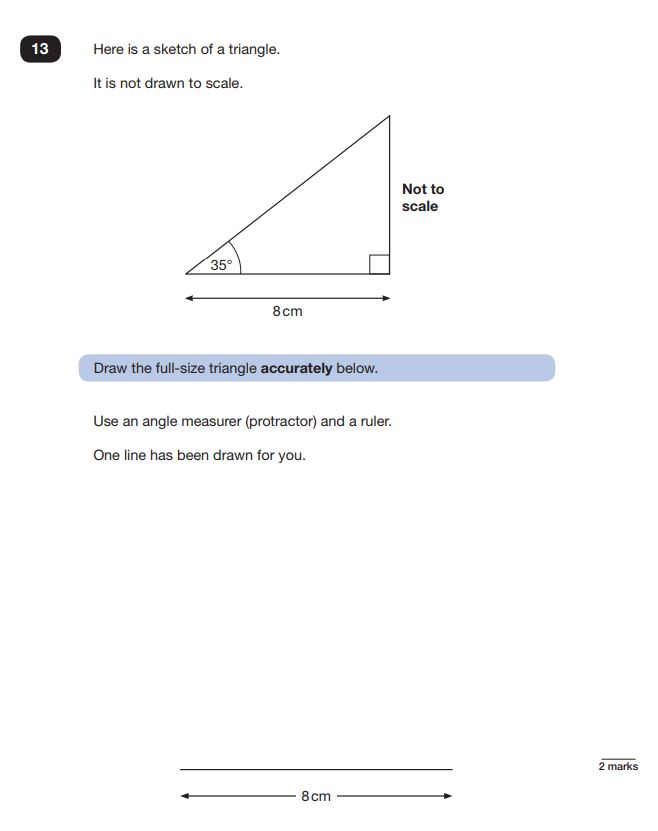
Solve problems with order of operations in the reasoning paper (which also explains why there was only one order of operations question in Paper 1)….
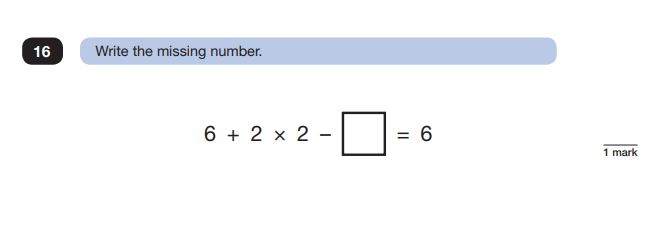
Interpret a non-standard way of presenting data….
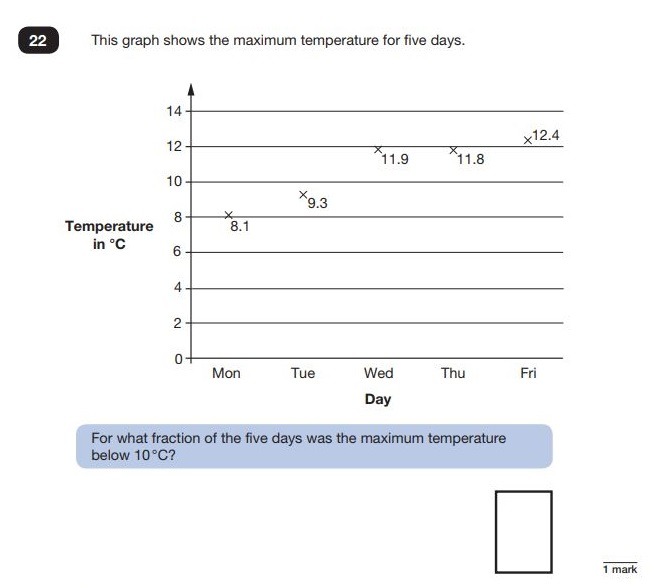
Solve problems where there was more than one possibility (all be it in a fairly kind way)…
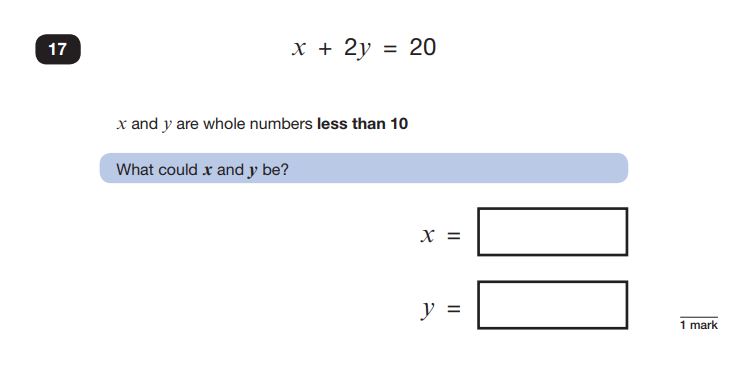
All of which had not been tested in the past three years, and therefore were ‘overdue’ an appearance.
8. Some surprising areas returned
When you look at the distribution of questions per content domain in the test frameworks, it is clear that some areas/topics are likely to appear every other year, or even every 3 years.
Despite this, we had a question involving the mean this year, despite it also being tested last year, along with volume reappearing too.
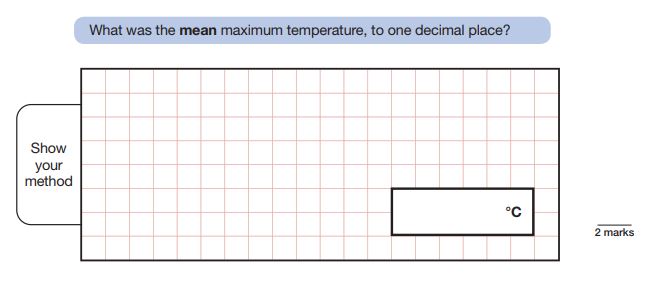
This means that these areas may be omitted next year.
9. Some content domains still missing in the 2019 KS2 Maths SATs papers
As always, there were some omissions- which is simply due to the fact that the test writers can’t test everything in one year (see our how SATs papers are created post for more on this).
This goes some way to explain, for example the lack of time questions (beyond the rate question in Paper 2) with no time durations, telling the time, or 24 hour clock conversions tested.
This could mean that telling the time will come up in the KS2 SATs papers 2023 in some way, shape or form, so to prepare take a look at our blog which is all about how to teach telling the time.
10. Predicting any ‘definite’ questions next year is difficult
We’ve got to the stage where most elements of the content domains in the test framework have been tested at least once over the past 3 years.
This means that things are certainly much more ‘open’ for what we can expect to be questioned next year.
However, reading between the lines of this years paper, we can make some predictions, and there is a strong chance that we will see the following types of questions next year:
- Calculating time durations/difference and/or interpreting clocks;
- More conversions of units of measure (see below);
- Interpreting complex scales;
- Negative numbers (as this was only lightly tested this year);
- Estimation;
- Translations where co-ordinates and the translation only are given, without a grid;
- Calculating with unknown angles (using shape properties).
We should also expect roman numerals to make a reappearance, but almost certainly for a single mark (so, as always, you may want to consider if this is a good use of the limited teaching time you have).
Third Space Learning’s AI maths tutoring programme has been developed by a team of teacher and pedagogy experts to cover all elements of the KS2 curriculum, so if you would like to find out how we can help plug gaps in all of the areas above, get in touch with us today.
11. Balanced content coverage
Despite the issues identified above, as with previous years, most areas of the KS2 maths curriculum were covered with all of the content domain ‘strands’ making an appearance.
This is good, as it shows the test developers are sticking to their statutory test framework for the content element at least (see our comments on the cognitive domains above!).
Read in more detail about how the content of the reading, GPS and maths papers break down with Year 6 teacher @_missiebee.
12. Arithmetic relied on accuracy of written and mental questions
Whilst there were other issues with the Arithmetic paper this year, especially in terms of the spread of content and the difficult ‘cliff’ (see above), what we have said before is still true:
The key to the arithmetic paper is children identifying between questions that could be carried out mentally (or with jottings) vs those that needed a fuller written method.
If children do not correctly identify between the ‘mental’ and ‘written’ questions, they would likely have still struggled to complete the paper in time. However, those who identified the ‘mental’ questions should have easily been able to complete the full paper within 30 minutes- even with the issues with the difficulty cliff-edge!
Since a high score on the arithmetic test is a key indicator of children meeting the expected standard, this skill (which again links back to ‘true’ fluency) must become or remain part of your approach to maths in Year 6.
Luckily, our well received resource, Fluent in Five, is designed to help with this skill!
13. Possible to achieve the expected standard without any Year 6 maths content
As we say each year, these are not just Year 6 SATs.
They test the full KS2 curriculum, and the test frameworks make it clear that over half of the marks each year will be drawn from the Y3-5 content domain.
This means that in the 2019 Maths SATs papers it is likely to be technically possible to get the raw score that equates to the magic ‘100’ without gaining any marks from the Year 6 content domain.
A content domain breakdown for paper 1:
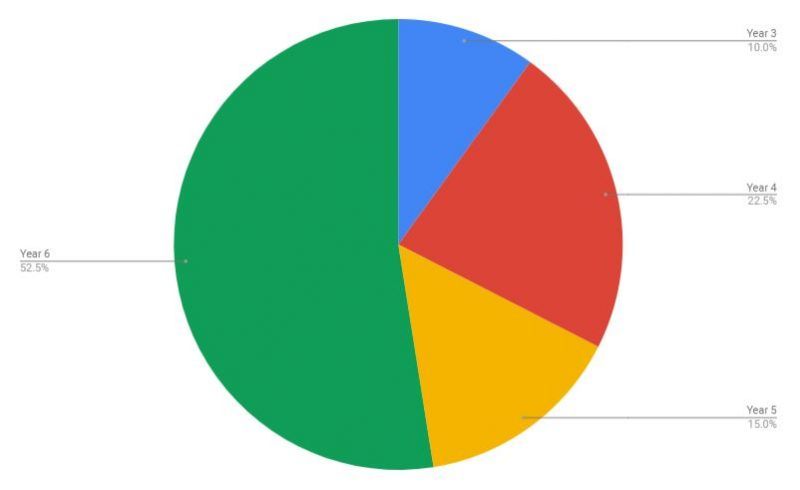
A content domain breakdown for paper 2:
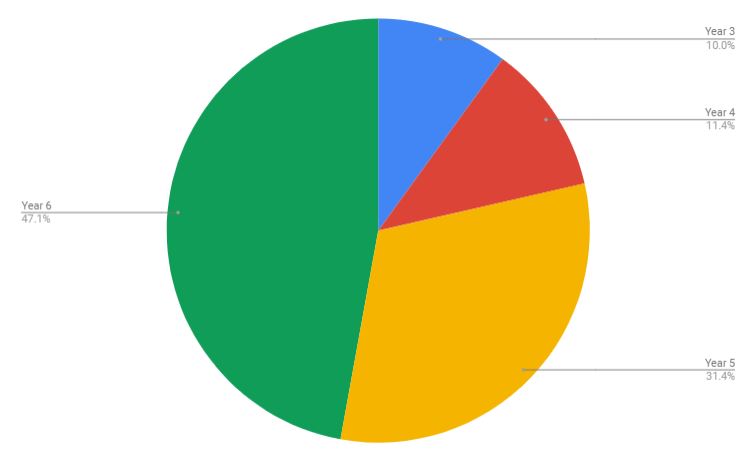
A content domain breakdown for paper 3:
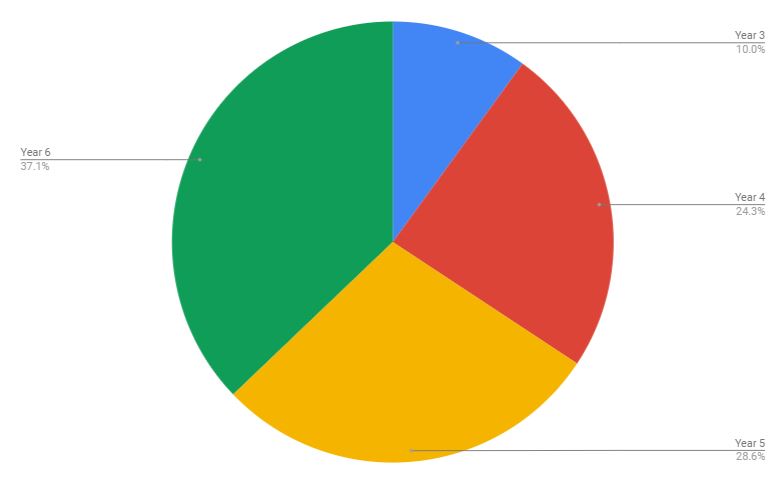
A combined content domain breakdown all 3 2019, KS2 Maths SATs papers:
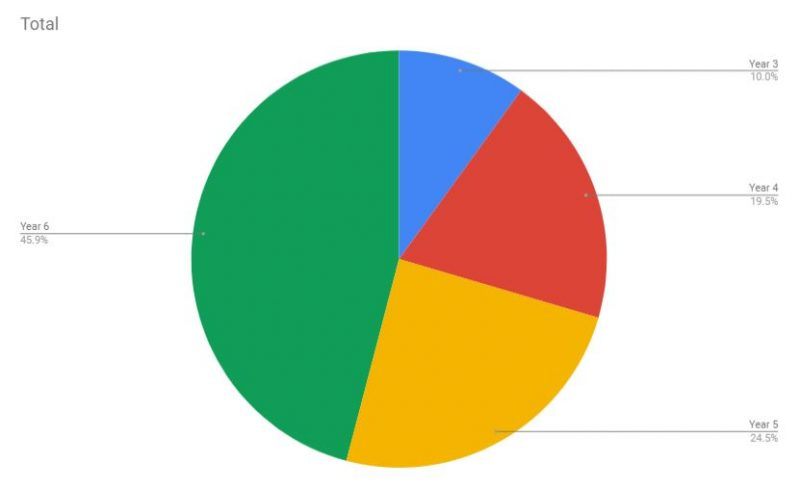
Now, of course, we are not suggesting that you don’t teach Year 6 maths content, but as part of your work in Year 6, it is important to ensure that key concepts are built upon and revised from previous year group’s schemes of learning.
This will help children make those all-important connections between areas of maths AND they will simply lose marks if they’re not confident on Year 3-5 maths content!
14. The three mark question moved
As implied in the test framework, it is likely that a 3 mark question- a feature only introduced in the new style SATs, is likely to appear once each year in either Paper 2 or Paper 3.
Interestingly, in 2019 the 3 mark question came in Paper 3, rather than Paper 2 like it had in previous years.
But, like 2018, the three-mark question was fairly straightforward, especially compared to the amount of work children had to do for one or two marks elsewhere in the test, so we expect children will have, on the whole, performed well on this question.
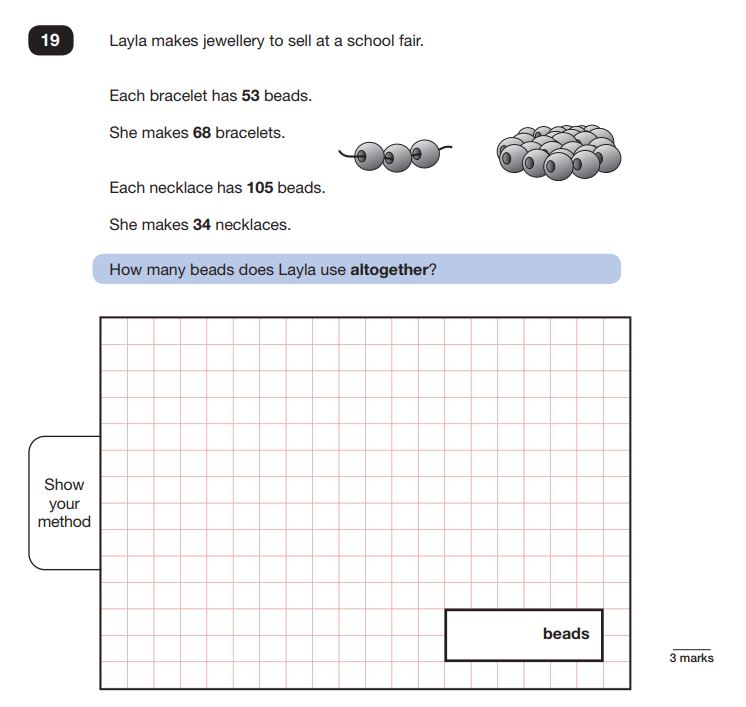
The identification of the calculations needed were very simple to identify:
53 x 68=3,604
105 x 34 = 3,570
3,570+3,604=7,174
In addition, the calculations themselves were not too tricky, as long as children were able to multiply TO x TO.
105 x 34 could have been carried out mentally or with jottings (100 x 34 + 340 ÷2) making the amount of time spent on this question even less (and this is a key reason why true calculation fluency is important!).
15. Repetitive question structures
We saw many of the ‘old favourite’ structures of questions return, after a gap of a few years…
We had the classic ‘I’m thinking of a number’ aka ‘THOAN’ question in paper 2…
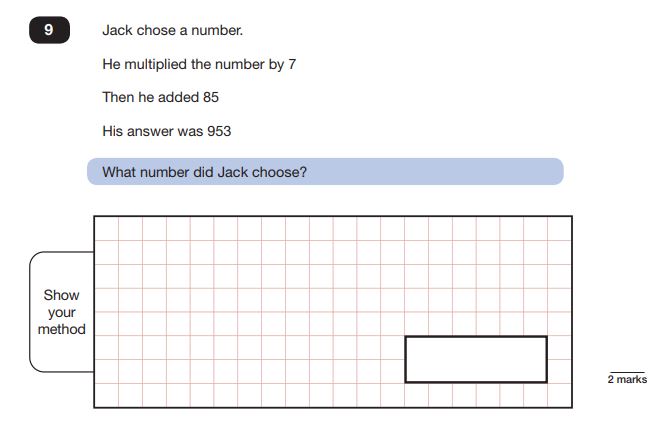
The ‘how much change’ in both papers…
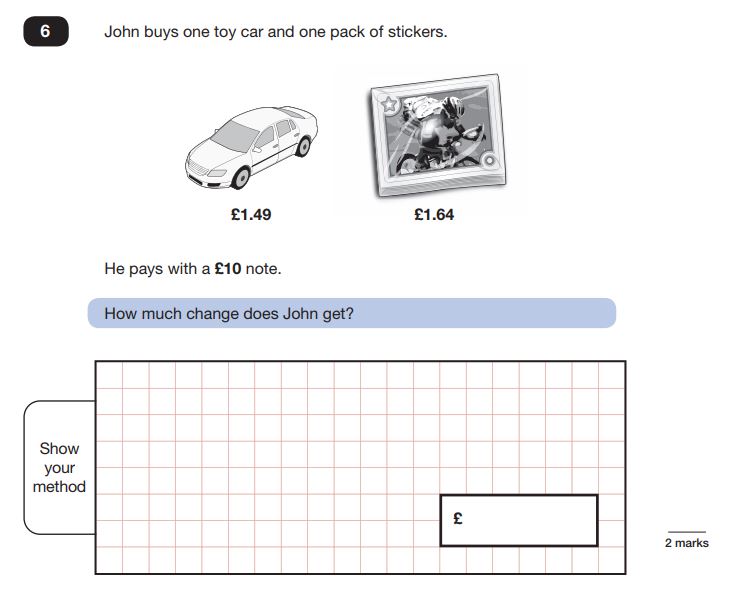
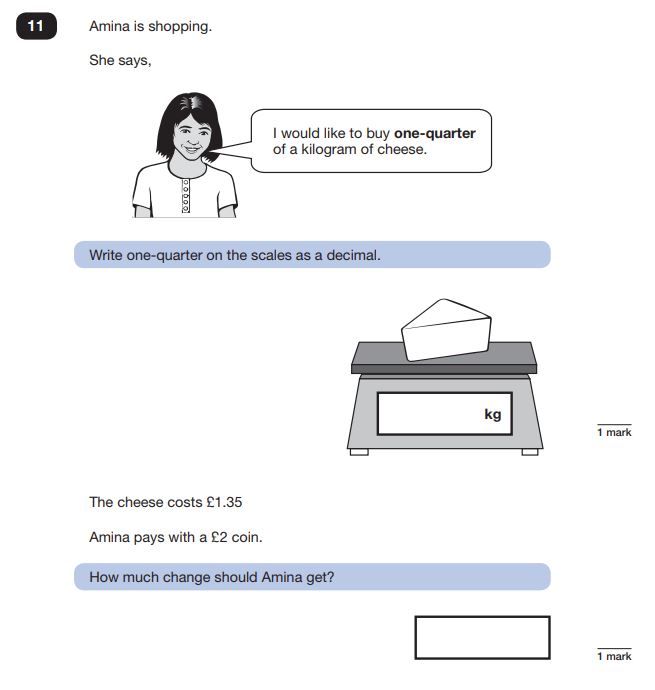
The ‘complete a sequence’ appeared twice in Paper 2 – and were only 3 questions apart – but there was an increase in difficulty the second time it was asked…

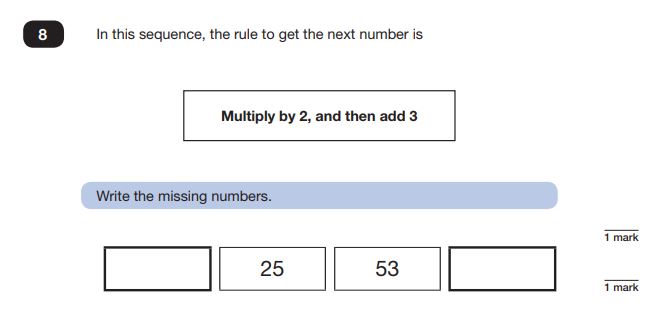
And, as we saw above, we also had the ‘let’s combine two different quantities together’ in the three mark question in Paper 3.
We do need to give the test developers some credit for ingenuity, with the ordering question in Paper 2 being presented in a rather bizarre way (we can only assume they wanted to also test positional numbers, which is an EYFS objective!).
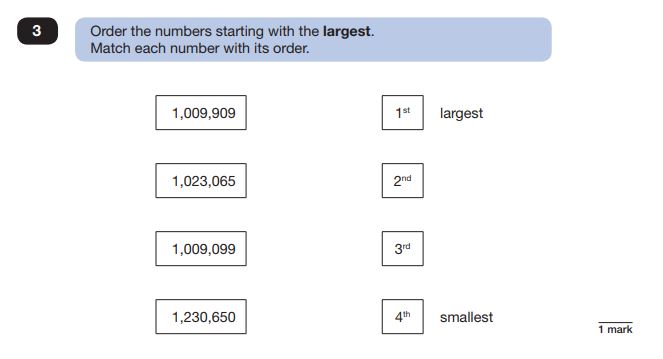
Overall, it is safe to say that the question structure in the KS2 Maths SATs 2019 papers was a mixed bag.
16. No ‘Chen’!
Examiners seem to have made ‘friends’ with a whole new set of children to include in their questions this year.
However, these characters still engaged in things that only happen in SATs land… as one child put it…
“The contexts are stupid…do they think we are all sitting round playing a game of ‘I’m thinking of a number, I’m going to do some calculations…what number did I think of’ just for fun?, Or that we are all desperately buying carrots and potatoes, pouring some dark paint into a container, cutting up pieces of paper just for fun, or giving money away!?”
This child certainly has a point…
Bonus takeaway from the 2019 KS2 Maths SATs
So, there we have it, our 16 point guide to some of the key learning from the KS2 2019 Maths SATs papers.
We’ll be back with another post when the results and conversion tables are out, within which we will be unpicking what this tells us about the achievement of children across the country, and what areas of maths remain key in light of the scaled score conversions for the three papers.
Until then though, enjoy the time you have with your Year 6 class, let us share some fun post SATs maths lessons with you, and most importantly and treat yourself to a well earned rest!
Further Reading:
KS2 SATs 2022: Maths Papers Question Breakdown
KS2 SATS Results 2018: How to look at the data and plan your next steps
KS2 SATs 2017 Question Breakdown for Maths
KS2 SATS 2018 Question Breakdown for Maths
6 Free SATs Maths Papers To Prepare Your Year 6 For SATs
The Best Year 6 SATs Practice Papers: Available As Free Downloads
KS2 2025 SATs Papers: Maths Papers Analysis And Question Level Breakdown
DO YOU HAVE STUDENTS WHO NEED MORE SUPPORT IN MATHS?
Skye – our AI maths tutor built by teachers – gives students personalised one-to-one lessons that address learning gaps and build confidence.
Since 2013 we’ve taught over 2 million hours of maths lessons to more than 170,000 students to help them become fluent, able mathematicians.
Explore our AI maths tutoring or find out about year 6 SATs for your school.



